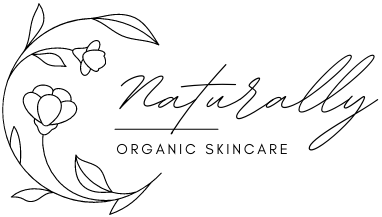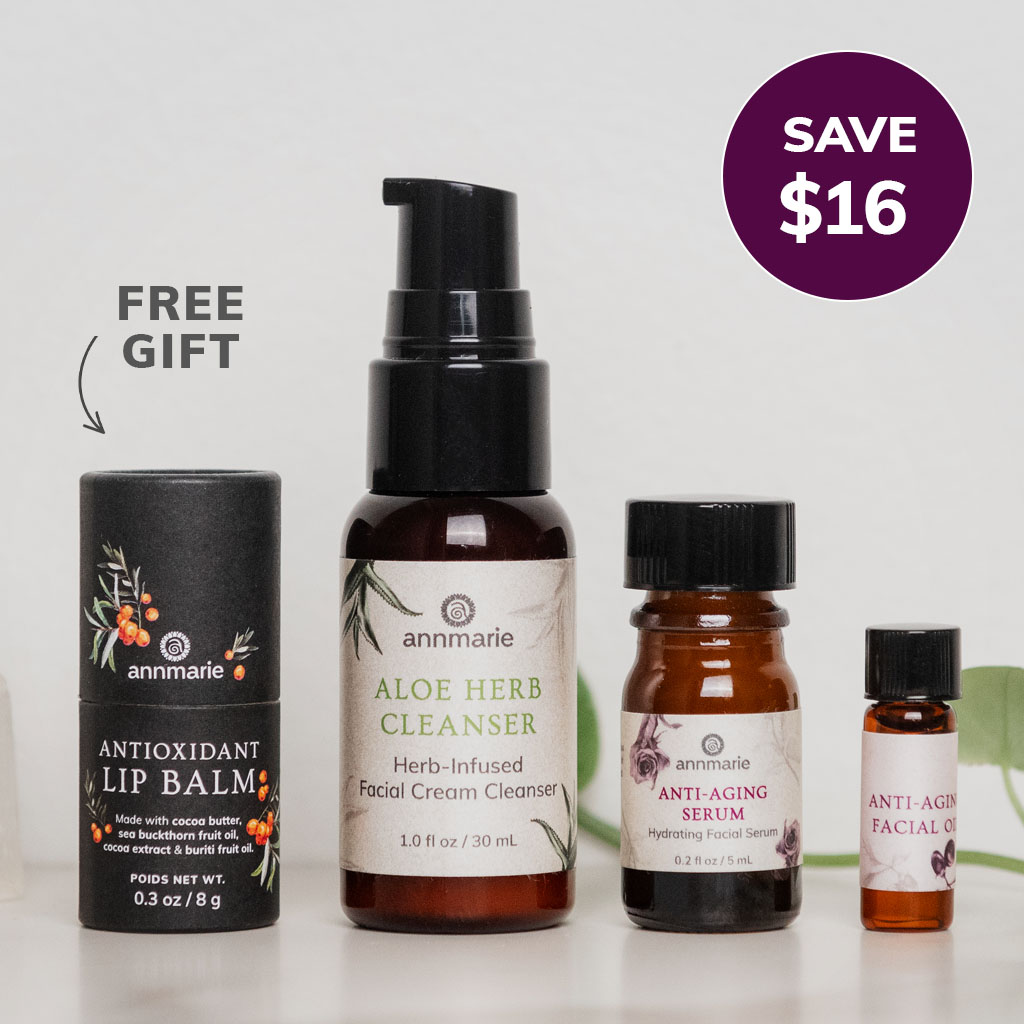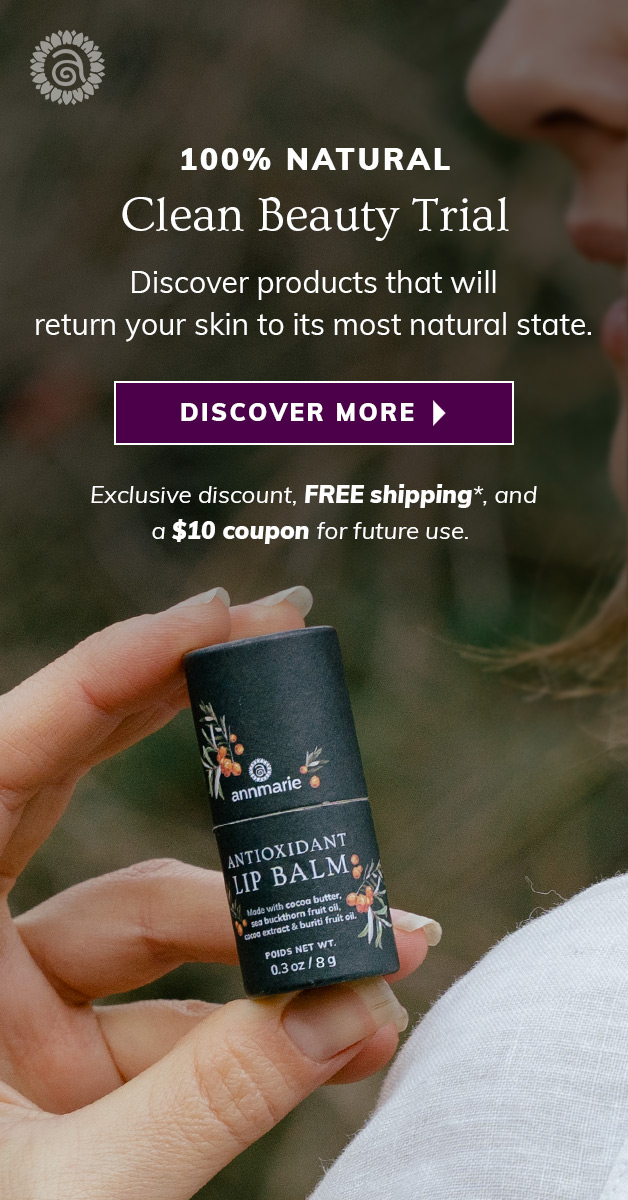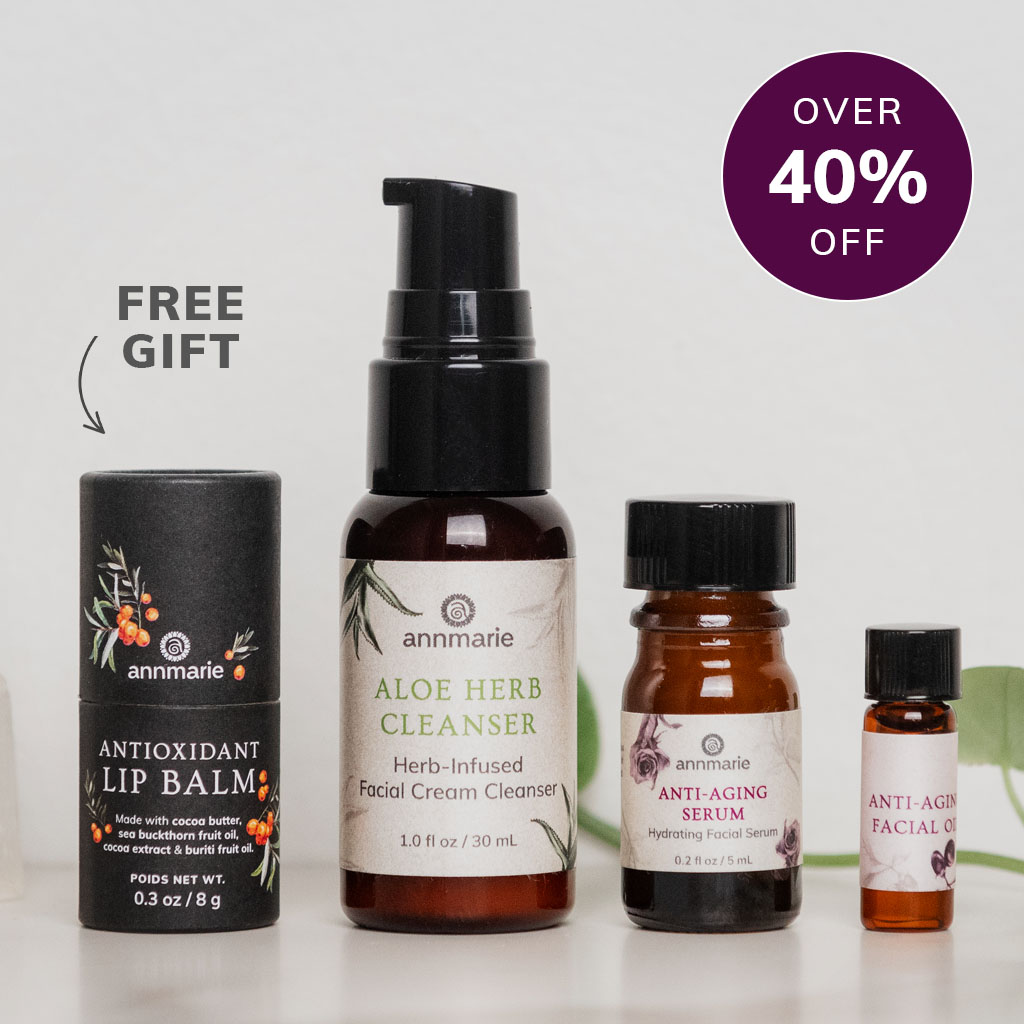When it comes to choosing the ideal oil for your skin care needs, it’s a tight race between argan oil vs rosehip oil, since both have impressive and distinctive qualities. These two all-natural oils are known for their moisturizing, nourishing, and rejuvenating properties.
Even if they are similar in some ways, what we’re most interested in is the differences in their respective compositions, benefits, and characteristics. Because that’s what defines a choice.
In this article, you will find a clear overview of the unique properties of argan oil and rosehip seed oil. I hope it’ll help you decide which one is more suitable for your skin type or specific skincare concerns.
| tl;dr / Rosehip Oil versus Argan Oil Rosehip oil is a crowd favorite (and mine) but Argan oil a.k.a. “liquid gold” has a raving fan base too, so don’t take anyone’s word for it. The only way to know which one your skin prefers is to try out both. |
Argan oil, derived from the kernels of the argan tree, has high levels of antioxidants and essential fatty acids, mainly oleic and linoleic acids.
Studies suggest argan oil’s antioxidant powers come from vitamins A and E, while its anti-inflammatory and wound-healing benefits provide an added bonus.
Argan oil tends to absorb quickly and is often used to treat skin conditions such as dry patches, acne, or eczema.
On the other hand, rosehip oil, extracted from the seeds of rosehip fruit, contains an abundance of vitamins C and E, as well as phytonutrients.
These components are known to contribute to anti-aging effects, stimulate collagen production, and aid in reducing the appearance of fine lines and wrinkles.
Rosehip oil is high in fatty acids but differs from Argan oil in that it contains mainly linoleic acid and linolenic acid.
Personal bias pushes me to say Rosehip oil takes the lead when it comes to anti-aging properties. However, it is undeniable that both oils have good things in store for mature skin.
By understanding the differences between argan oil and rosehip oil, you’ll be able to make an informed choice, or – if you can’t choose – know exactly why, when, and where to use both.
If you’re new to the use of oil on your face in general (regardless of which one) hopefully my enthusiasm will win you over to the oily side!
My grandmother had beautiful skin and she used oil on her face. As is to be expected from a teenager, I was not going to take her word for it and had to discover the benefits of oil later, on my own.
Truly, adding oil to your skincare routine is one of the best things to achieve a more radiant and flawless complexion.
Let’s learn some more about the unique benefits of these two skincare favorites: Rosehip oil vs Argan oil.
Argan Oil
Origin & Extraction Process
Argan oil is derived from the nuts of the argan tree, which is native to Morocco. It has been used for centuries by Moroccan people for its various beauty and health benefits.
The extraction process involves first removing the outer layer of argan nuts, then crushing the inner kernel to obtain the oil. Traditionally, this was done by hand, but modern methods often use mechanical presses to extract the oil more efficiently.
Benefits & Uses
Argan oil is rich in several essential fatty acids, such as oleic and linoleic acids, as well as vitamins like A and E. These components offer numerous benefits for your skin and hair. Here’s a breakdown of some key Argan oil benefits:
- Fatty acids: Oleic and linoleic acids are vital for maintaining skin moisture levels and elasticity. They may also work together to improve your skin’s barrier function, helping to protect it from environmental damage.
- Vitamin A: This antioxidant encourages healthy skin cell production and helps to reduce the appearance of fine lines and wrinkles.
- Vitamin E: Known for its skin-saving properties, vitamin E helps neutralize free radicals, promotes skin healing, and can improve overall skin health.
Normally, oils high in oleic acid are good for dry skin but not really your friend if you have acne-prone skin. However, Argan oil has a balanced fatty acid composition and contains quite a lot of linoleic acid as well. This is probably why some people report it works really well for their oily and blemish-prone skin. You’d have to try it to see whether this is the case for you.
For our hair, argan oil works as a natural conditioner, providing moisture to dry strands and promoting a healthy scalp. It also helps to tame frizz and improve the overall shine and appearance.
Best Brands
When shopping for argan oil, it’s essential to look for brands that offer pure, organic, and cold-pressed oils to ensure you’re receiving the highest quality product. Here are some affordable, trusted, and well-known brands to consider:
- Now Solutions: A popular brand that can be found online as well as on the shelves of many department stores. I’ve always been happy with their oils and have tried many. They have high-quality, 100% pure organic argan oil.
- Desert Essence: Known for their natural beauty products, Desert Essence offers USDA-certified organic and pure argan oil. No personal experience with this specific oil on my end, but I have used and loved their Jojoba oil.
- Leven Rose: A smaller, independent brand, Leven Rose provides pure, cold-pressed, and unrefined argan oil sourced from Morocco. This brand has gotten on my radar through reading reviews on Amazon and they seem to stand out with excellent customer service, sending free replacement if ever an order arrives damaged or broken.
- Acure Organics: A well-known natural, organic skincare brand, Acure has small bottles of Argan oil and Argan oil blends.
Rosehip Oil
Origin & Extraction Process
Rosehip oil is derived from the seeds of wild rose bushes, which are typically found in the southern Andes, Chile, and South Africa. To extract the oil, the seeds are cold-pressed, preserving their beneficial nutrients and resulting in a pure, unrefined oil that retains its natural properties.
The result is a beautifully colored oil with a warm hue, veering more or less on the orange depending on the brand.
Benefits & Uses
Rosehip oil is packed with essential fatty acids, vitamins, and phytonutrients that are beneficial to our skin and hair. Some of the key components include:
- Linoleic acid: This fatty acid helps maintain the skin’s natural barrier, making it a suitable choice for people with oily skin.
- Vitamins A, B, C, E, and K: These vitamins work together to nourish the skin and fight off signs of aging.
The combination of these elements in rosehip oil may offer the following benefits:
- Improved skin elasticity
- Reduced wrinkles and fine lines
- Anti-inflammatory and wound-healing effects
Achieving these benefits is as simple as applying a few drops of rosehip oil directly onto your skin or incorporating it into your regular skincare routine.
Another fun tidbit of information about rosehip oil is that it contains natural retinoic acid. The kind of vitamin A found in rosehip oil is more beneficial than retinol on its own. Smart people with degrees in this field can explain it a lot better I’m sure, but in short, this is because your skin will recognize it straight away, so it won’t need time to convert.
Best Brands
To experience the maximum benefits of rosehip oil, it’s important to choose a high-quality product. Here are some reputable and affordable brands that you can trust:
- Now Solutions: Offers a 100% pure Rosehip oil that’s versatile and effective for various skin types.
- Desert Essence: Known for its high-quality, organic Rosehip oil, perfect for nourishing your skin and hair.
- Pai: Their rosehip oil is specially formulated for sensitive skin and is certified organic.
- A’kin: Also certified organic, this brand’s Rosehip oil is my favorite. Hard to explain exactly why, there was just something very fine about the texture and the scent was deliciously light and nutty.
- Trilogy: Popular for its Certified Organic Rosehip Oil, Trilogy ensures strict quality standards and is cruelty-free. The brand has an entire range of skincare products in addition to its signature Rosehip oil.
- Life Flo: Their organic Rosehip oil is cold-pressed and can be used for both skin and hair care. It is the very first Rosehip oil I ever tried, before the explosion of other brands, and it’s perfectly fine.
- Leven Rose: Offers 100% pure, organic Rosehip oil sourced from small, independent suppliers.
It’s probably hard to choose between all of these trusted brands.
One of the higher-end ones might be more suited for skincare while for hair care, a budget pick from Amazon should work just fine. No offense for making hair a second-class body part here. My hair is just… more forgiving, I guess. So I keep the good stuff for my face. 😉
Tip: If you have sensitive skin, the brand Pai is worth checking out. Every time I try something by Pai, it’s such a positive experience. Here are two reviews: Pai Kukui & Jojoba Bead Skin Brightening Exfoliator and Pai Copaiba Deep Cleanse AHA Mask.
Similarities and Differences
Composition
When comparing Argan and Rosehip oils, it’s essential to look at their compositions. Both oils contain unsaturated fatty acids, which are beneficial for your skin. Two of the most common fatty acids they share are oleic acid and linoleic acid. However, there are some differences in their concentrations:
- Argan oil is higher in oleic acid, which is more nourishing and moisturizing.
- Rosehip oil has a higher concentration of linoleic acid, making it a better option for oily skin.
In terms of vitamins and anti-aging components, Argan oil is rich in vitamins A and E as well as some CoQ10, while Rosehip oil contains vitamins A, C, E, and K.
Skin Types
Let’s break down how these oils complement different skin types:
- Dry skin: Argan oil is an ideal choice for dry skin due to its higher oleic acid content and nourishing properties.
- Sensitive skin: Both oils can be gentle on sensitive skin, but it’s always best to perform a patch test and assess your individual reaction.
- Normal skin: Either oil can work well for normal skin – just decide on your preference based on additional benefits like anti-aging or antioxidant properties.
- Oily skin: Rosehip oil might be a better fit for oily skin due to its higher linoleic acid content.
- Acne-prone skin: Even though Argan oil can help with acne, Rosehip oil has a good reputation for reducing acne scars and inflammation.
- Mature skin: Both oils are beneficial for anti-aging skincare. Argan oil’s oleic acid has anti-aging properties, while Rosehip oil contains linoleic acid that also contributes to combating signs of aging. There is no law against mixing them together and using both at the same time.
Hair Care
When it comes to your hair, both Argan and Rosehip oils can offer unique benefits:
- Argan oil: Often referred to as “liquid gold,” Argan oil can moisturize and nourish your hair, reduce frizz, and promote a healthy scalp. It also enhances shine and softness.
- Rosehip oil: Rich in antioxidants, Rosehip oil helps protect your hair from environmental damage and can promote hair growth by nourishing and hydrating the scalp.
To summarize, Argan and Rosehip oils both provide numerous benefits for your skin and hair. Consider your skin type and specific needs when choosing the right oil for you.
How to Choose the Right Oil
Skin Concerns
When it comes to skin concerns like sensitivity, redness, and acne, both argan and rosehip oils can offer some relief.
For oily and acne-prone skin, rosehip oil might be a better option as it is higher in linoleic acid. This can help balance the excess amount of oleic acid that is produced by those with oily skin.
Argan oil, on the other hand, is well suited for drier skin types, as it’s more nourishing and moisturizing due to its higher oleic acid content.
For those with an active lifestyle, who enjoy fun in the sun, you may have heard certain oils contain SPF. While rosehip oil does have some of that, keep in mind that it’s always a good idea to apply proper sunscreen for sun protection.
Just because an oil has a hint of SPF (compared to a baseline of nothing) does not mean it functions as an actual natural sunscreen product.
Tip: Do you have very sensitive skin? Check out Best Carrier Oil for Sensitive Skin: 10 Top Choices for Gentle Care for more tips on the most suited oils to soothe and restore.
Age
As you age, your skin may need some extra care to combat fine lines, wrinkles, and sun damage. Rosehip oil is rich in vitamins A, C, E, and K, which can help rejuvenate your skin and fight the signs of aging. Packed with antioxidants, rosehip oil can improve your skin’s elasticity, stimulate collagen production, and even out your skin tone.
Argan oil also contains vitamins A and E, making it an excellent choice for treating aging skin. It can help to reduce the appearance of wrinkles and fine lines, while also providing deep hydration. The antioxidants in argan oil can protect your skin from free radical damage and improve your overall skin health.
Lifestyle & Mindset
It’s reasonable to say your lifestyle probably influences your choice of skin care. Whether you’re living the eco-minded life, consciously choosing all-natural and organic products or an activist against animal cruelty, you’ll be happy to know that both argan oil and rosehip oil check all those boxes.
Oils are all-natural by default. No animal testing is needed. (Though this need is highly debatable for conventional cosmetics, too.)
When choosing an organic oil over a “regular” one, you can be certain the end-product is free of pesticides and no pesticides have been added to the earth’s ecosystem either.
Please remember that all-natural does not always equal safe, just as peanuts are natural but not safe for everyone. Allergies varying from contact dermatitis to more serious reactions to either Argan or Rosehip oil are rare but possible. (Source: WebMD.com, Medicalnewstoday.com)
Conclusion: Argan Oil vs Rosehip Oil
It’s a tight race between Argan oil and Rosehip oil because they have some similarities, such as vitamins A and E, and linoleic acid.
Other oils, such as Argan Oil and Coconut Oil, for example, are more in contrast with each other, which can make it easier to choose.
Here is a quick recap as far as skin types go, as well as an overview of some specific skin concerns.
- For oily and acne-prone skin: Rosehip oil is the safer bet, even if Argan oil works for some.
- For drier and more mature skin: Argan oil is a good fit, then again, so is Rosehip oil.
- Signs of sun damage: Rosehip oil is great to moisturize the skin all while having a brightening effect on darker spots or sun-damaged skin (thanks to its vitamin C content).
- For eczema: Both oils can be used, however, for eczema, a few other oils entirely stand out from the crowd. Jojoba oil, as well as Borage oil or Tamanu oil (diluted in both cases) are even better suited to alleviate eczema.
- For stretch marks: Alas, the consensus among professionals is that stretch marks do not actually diminish with the use of oils. Bummer. Of course, we’re allowed to be stubbornly optimistic and try anyway, in which case I’d do so using Argan oil. And while neither of these oils is likely to prevent stretch marks entirely, at least they’ll leave the surface of your skin radiant and glowing.
- For hyperpigmentation: Rosehip seed oil is the one for hyperpigmentation, with its higher levels of skin-brightening vitamin C.
Now that we’ve broken down the similarities and differences, I hope you have a better idea of which one might be right for you.
Incorporate one or more oils into your daily routine and find out how they work wonders for your skin! Here are a few other comparisons that you might find interesting:




